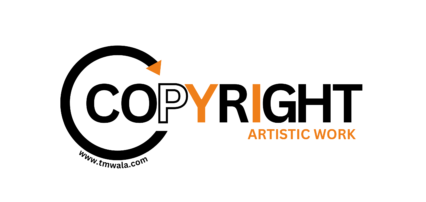
₹6,000.00 Original price was: ₹6,000.00.₹2,999.00Current price is: ₹2,999.00.
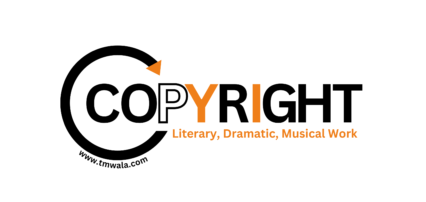
₹6,000.00 Original price was: ₹6,000.00.₹2,999.00Current price is: ₹2,999.00.
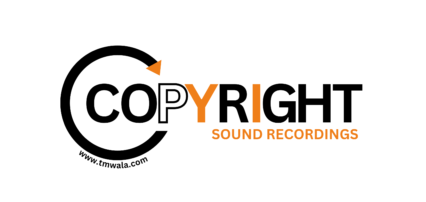
₹6,000.00 Original price was: ₹6,000.00.₹2,999.00Current price is: ₹2,999.00.
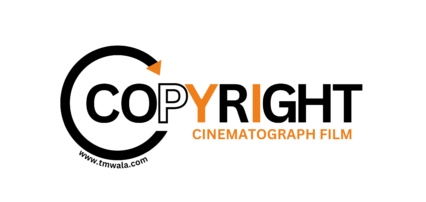
₹10,000.00 Original price was: ₹10,000.00.₹4,999.00Current price is: ₹4,999.00.
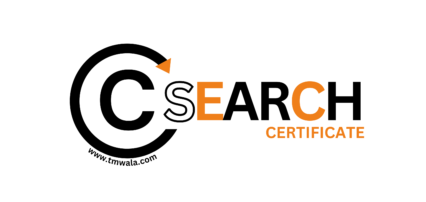
₹35,000.00 Original price was: ₹35,000.00.₹19,999.00Current price is: ₹19,999.00.
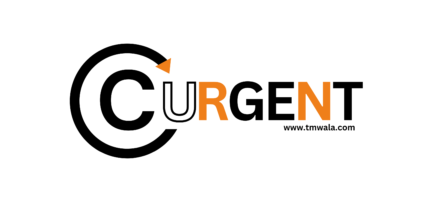
₹24,000.00 Original price was: ₹24,000.00.₹11,999.00Current price is: ₹11,999.00.
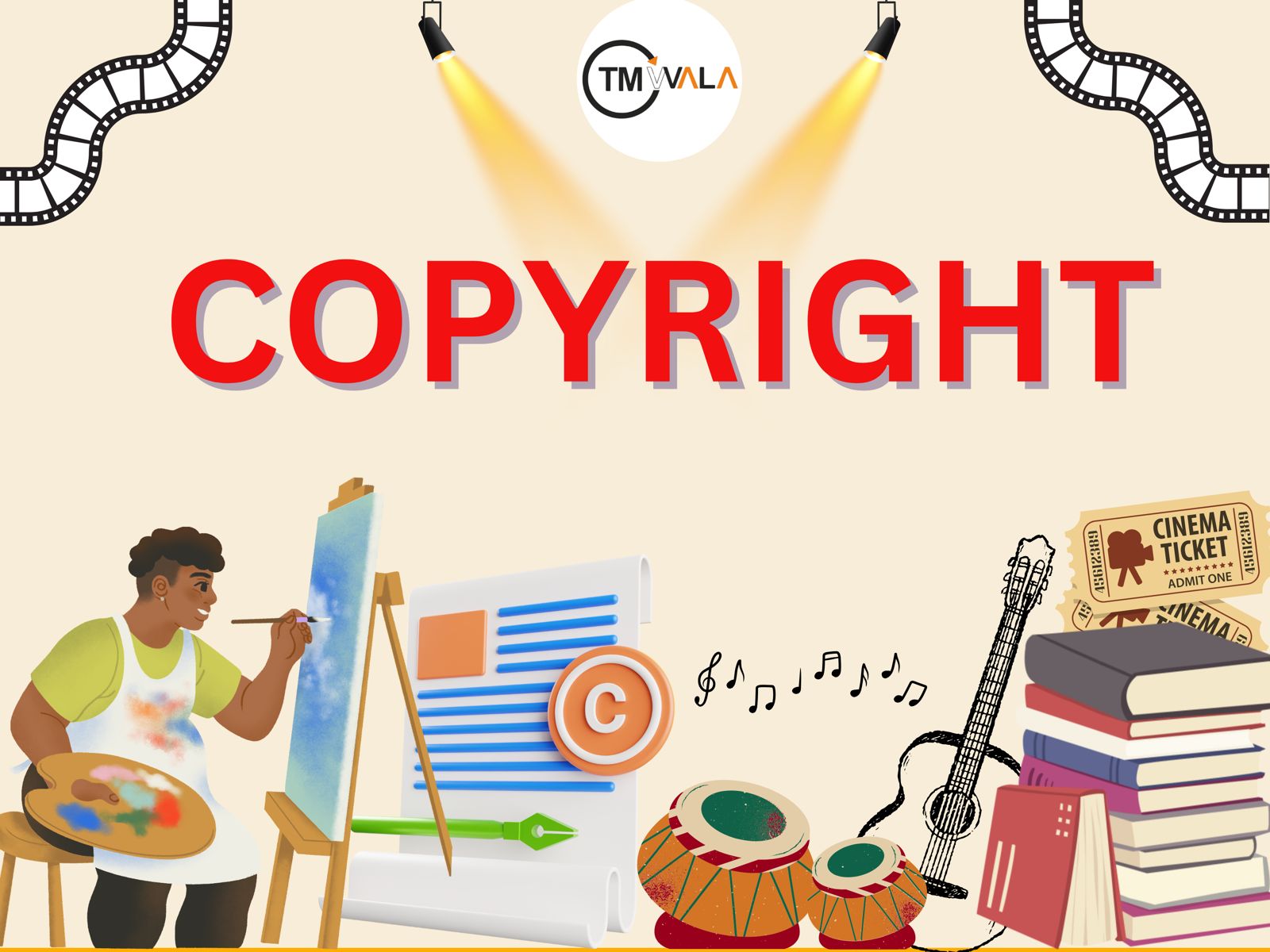
You’ve poured hours, effort, and passion into creating something unique, and now it’s time to ensure it’s protected. The Indian Copyright Act is the law that does just that—it shields your creative work from being used without your permission. Whether you’re an author, artist, musician, or software developer, this act plays a crucial role in safeguarding your intellectual property in India. But, what exactly does it cover, and how does it work? Let’s break it down in a simple, easy-to-understand way so that copyright law feels less daunting and more empowering for you.
The Indian Copyright Act, enacted in 1957, is the primary law governing copyright protection in India. It provides creators with exclusive rights over their original works, allowing them to control how their work is used, distributed, and monetized. Essentially, this law ensures that if you create something, no one else can use it without your permission—at least, not legally. But don’t worry, this isn’t just for big corporations or blockbuster movies. It applies to everyday creators like you, whether you’re writing a blog, composing music, or designing an art piece. In short, if you’ve created something original, the law is on your side.
The act has undergone several amendments to keep up with the changing world, especially with the rise of digital content. With the internet making it easier than ever to share—and, unfortunately, steal—creative work, the Indian Copyright Act has adapted to address modern challenges. It gives you both moral and economic rights, so you’re protected not just financially, but also in terms of how your work is presented or modified.
You might be wondering, “What exactly can I protect under this law?” The Indian Copyright Act covers a wide variety of original works, including literary, artistic, musical, and cinematographic creations. This means your book, poem, painting, song, or even a short film can all be registered under the law. Even if you’re into something more technical like computer software or architectural designs, copyright law has your back.
While copyright covers a wide range of original works, there are some things it doesn’t protect. You might be surprised to learn that ideas, procedures, methods, and concepts fall into this category. For instance, if you’ve thought up a brilliant business idea or a revolutionary new process, copyright won’t protect the idea itself. However, the way you express that idea—whether in writing, as a presentation, or in another tangible form—can be protected.
Facts and data themselves also aren’t protected by copyright, although how they’re presented might be. If you’ve written a report or compiled data into a unique format, the presentation could be copyrighted, but not the raw information. The distinction is important for researchers and journalists who deal with data and information regularly.
Copyright protection also kicks in the moment your work is created, even without registration. However, getting your work officially registered with the Copyright Office gives you stronger legal standing in case someone tries to copy or misuse it. If you ever find yourself in a dispute, having that registration certificate can be a lifesaver.
Now, what do these exclusive rights actually mean? Under the Indian Copyright Act, creators like you are granted several key rights. First off, there’s the right to reproduce the work—meaning no one else can make copies of your creation without your permission. Whether it’s printing more copies of your book or making digital copies of your music album, the decision is entirely up to you.
You also have the right to distribute your work. So, if you want to sell, rent, or share your work with the public, you can do so on your terms. You have full control over how and where your work is shared. Want to give away free copies of your eBook? That’s your choice! Want to sell limited editions of your art piece for a premium price? Totally up to you.
One of the coolest things about the Indian Copyright Act is that it also gives you the right to perform or display your work publicly. If you’re a musician, this means only you get to decide where and when your song gets played live. If you’re an artist, you control how your painting is exhibited. This aspect of copyright is particularly important in the entertainment and arts industries, where public performance or display is a significant part of a creator’s income.
Beyond the basic rights to reproduce, distribute, and perform your work, the Indian Copyright Act also grants you two important types of rights: moral rights and economic rights.
Moral rights allow you to claim authorship of your work and protect your reputation. So, if someone else tries to take credit for your creation or distorts it in a way that could harm your reputation, you have the right to step in. Even if you’ve transferred your copyright to someone else, you still retain your moral rights. That means your name remains attached to your work, and no one can alter it in a way that might misrepresent you as a creator.
Economic rights, on the other hand, refer to your ability to financially benefit from your creation. Whether it’s selling copies of your work, licensing it for use, or collecting royalties, you get to decide how your creation is monetized. If someone else wants to use your work commercially, they need to pay you for that privilege. This is where your copyright truly turns into a valuable asset.
In today’s digital age, when content is shared globally within seconds, having a strong understanding of your copyright protection is more important than ever. The Indian Copyright Act ensures that your creative work stays yours. Whether you’re an artist, author, musician, or any other type of creator, this law provides you with a legal framework that keeps you in control.
So, take a deep breath, and remember that the Indian Copyright Act is there to safeguard your hard work and creativity. Whether you’re just starting your creative journey or already have a portfolio of work under your belt, understanding this law is your first step towards protecting what you’ve created.
Brief information regarding copyrights:https://tmwala.com/copyright-registration/
Understanding the types of copyright in India is essential for every creator. Whether you’re writing a novel, composing a song, designing a logo, or building software, copyright ensures that your work is protected. But not all creative works fall under the same type of copyright protection. Depending on what you’ve created, the specific rights you hold may vary. Let’s take a fun and easy dive into the different types of copyright in India and how each one can protect your unique creations.
When you think of literary works, your mind probably jumps to novels and books. But in India, copyright for literary works covers much more than that! From short stories, poems, and essays to blog posts, articles, and even computer programs, yes, you heard that right literary works come in many forms.
If you’re a writer, blogger, or even a coder, your original text or code is protected under this category. Once you’ve put your thoughts, ideas, or lines of code down in a tangible form, you automatically hold copyright. This means you have exclusive rights to reproduce, distribute, and even translate your work. So, no one can publish your blog post or replicate your software without your permission. Pretty empowering, right?
And here’s something fun: even recipes can sometimes be considered literary works, but only if they go beyond a simple list of ingredients and include a creative process or storytelling. So, if you’ve been writing that cookbook with colorful anecdotes and a unique voice, congratulations! Your creative flair is officially protected.
There are two types of Artistic Works for which Copyright can be granted in India!
1. For Artistic Works to be used in or in relation to Goods or Services
2. For Artistic Works not to be used in or in relation to Goods or Services
1. For Artistic Works to be used in or in relation to Goods or Services
There is an overlap between the Trademarks and Copyright. Lets explain this with a help of a simple example.
Imagine you created a Logo for use on a Food Product, now will that logo be protected under Copyright or Trade Mark? The answer is both! Since, the Logo is essentially an artistic work which you use in relation to goods or services, the logo itself is a Copyrightable material, but once it is used in relation to goods or services, it becomes a trade mark as it identifies the goods or services of one person from the other.
In India, there is a unique way of overcoming this overlap while ensuring that there is no disparity or irregularity between Trade Marks & Copyrights. This type of copyright is called “Copyrights in Artistic Work capable of being used in or in relation to Goods or Services”.
Since, this is a matter which concerns both Trade Marks & Copyright it is the harmony between the two Laws and the two Government Offices which makes this protection possible.
For a person who wants his logo, artistic work, packaging, device, whatsoever to be registered under the Copyright Act which he intends to use in or in relation to goods or services, the said person has to first obtain a No Objection Certificate called a Search Certificate from the Trade Marks Registry. This application is filed on Form TM-C under Rule 22 of the Trade Marks Rules, 2017. There are two methods of obtaining this Search Certificate:
a. The Normal Method: Normal Method entails a Government Fee of Rs.9,000/- wherein the Search Certificate is usually issued after 6-9 months.
b. The Urgent Method: Under Urgent Method, the Government Fee increases to Rs.30,000/- and the Search Certificate is usually issued within 1-2 months.
After this Search Certificate is issued by the Trade Marks Registry, you have to approach the Copyright Registry and file Form XIV wherein the details of the Certificate and the Certificate Number will be mentioned. Further, the copy of the certificate will also be sent to the Copyright Registry. Further, since it is different from normal artistic works, the Fee to be paid before the Copyright Registry is Rs.2,000/-.
You can easily file Copyrights with TMWala for works which can be used in or in relation to Goods or Services.
2. For Artistic Works not to be used in or in relation to Goods or Services
For all you painters, sculptors, photographers, and designers out there, artistic works are the copyright category you should care about. This category covers things like paintings, drawings, sketches, sculptures, photography, and even architectural designs.
What makes artistic works special is the way they protect the visual expression of an idea. For example, if you paint an original masterpiece or snap a beautiful photo, copyright ensures that no one can reproduce or display your artwork without your permission. It’s like putting a protective bubble around your creation so others can’t steal it or use it without crediting you.
Even graphic designers and digital artists are included here. So, if you’ve spent hours crafting a unique logo or designing a website layout, your work is protected under artistic copyright. And get this—you can even license or sell your work, which means you could potentially make money by allowing others to use it in certain ways. Who knew copyright could turn into a business opportunity?
Music lovers, this one’s for you! Musical works in India cover everything from the melody, harmony, and composition of a piece to the lyrics. Whether you’re a songwriter, composer, or musician, your music is automatically copyrighted the moment it’s recorded in some form, like a music sheet or a digital file.
One of the coolest things about musical copyright is that it protects not only the written or recorded piece, but also any public performance. So, if you’re performing your song at a concert or uploading it to streaming platforms, no one can legally use, copy, or distribute it without your consent. You can also license your music to films, advertisements, or other artists, potentially earning royalties every time your song is played.
And here’s a fun fact: even if you’re just humming a tune and someone records it without your permission, that counts as infringement! So, whether you’re a full-fledged musician or just dabbling in song writing, your creative sounds are well-protected under Indian copyright law.
If you’re a filmmaker, director, or producer, copyright protection for cinematographic films is a must-know. This type of copyright covers everything involved in making a film, including the script, dialogues, music, and visual elements. Whether it’s a feature-length movie or a short film, once it’s recorded, it falls under this category.
Cinematographic films also cover animations, documentaries, and even music videos. So, if you’re into visual storytelling, this type of copyright ensures that you maintain control over your work. No one can reproduce, sell, or broadcast your film without your approval. You’re the boss of your content, and you get to decide where and how your film is shown.
And guess what? Even trailers and teasers can be protected under this type of copyright, so your sneak peeks are just as important as the final product. This means every aspect of your film is safeguarded, allowing you to share your vision with the world while keeping your rights intact.
Let’s not forget about sound recordings! This type of copyright protects any recorded sound, whether it’s music, speeches, or even a podcast. If you’ve ever recorded an original audio file—whether it’s a song or a spoken-word performance—you’re the owner of the copyright for that sound recording.
What’s cool about sound recording copyright is that it covers not just the content itself, but also the specific recording of that content. So, if you record a song or produce a podcast, both the recording and the content within it are protected. If anyone wants to use or distribute your audio file, they’ll need to seek your permission first.
For all you podcasters out there, this means your episodes are covered too! Whether you’re interviewing a guest or recording a solo episode, your voice, music, and the entire recording are safe from misuse. So go ahead and hit record with confidence!
If you love the theater or scriptwriting, dramatic works might be your favorite type of copyright. This category includes plays, scripts, and even choreography. If you’ve written a play or scripted a stage performance, copyright ensures that only you—or those you give permission to—can perform, adapt, or publish your work.
It’s not just about protecting your text, though. Dramatic copyright also covers any visual or audio elements that are part of the performance. So, whether you’re staging a play or choreographing a dance, every part of your creation is legally protected. No one can take your script or performance and stage it without giving you the credit you deserve.
Examples of Copyright in Action: Everyday Situations that Show Its Power
Let’s explore some real-world examples of copyright in action and how it can make a difference for creators just like you.
1. The Music Industry: Copyright in Action to Protect Musicians
A famous example is the “Blurred Lines” case. In 2015, the creators of the hit song “Blurred Lines,” Robin Thicke and Pharrell Williams, were sued for copyright infringement. The estate of Marvin Gaye claimed that the song copied elements from Gaye’s 1977 classic “Got to Give It Up.” After a long trial, the court ruled in favor of Gaye’s estate, awarding them millions in damages. This case shows just how powerful copyright is in protecting musicians and ensuring that original works are respected. So, the next time you create a masterpiece, remember that copyright can act as your safety net.
2. Movies and TV Shows: How Copyright Safeguards Screen Content
You know that feeling when you sit down to watch your favorite movie or TV show? Copyright is working hard behind the scenes to protect the creators and producers of that content.
One fascinating example is the lawsuit involving the movie “Avatar.” James Cameron, the famous director of “Avatar,” faced numerous copyright lawsuits after the movie was released. Several writers claimed that the plot and characters of “Avatar” were based on their earlier works. However, after careful review, courts ruled that Cameron’s ideas were original, showcasing how copyright laws can protect a creator’s vision while ensuring that disputes are resolved fairly.
A show like Game of Thrones, for example, is not only protected as a full series but each episode, script, and even the theme music is copyrighted. So, every time you enjoy an episode, you’re watching copyright in action, working to protect the showrunners and everyone involved in the creative process.
3. Publishing: Protecting Writers Through Copyright
If you’ve ever written a book or even a blog post, you’ve likely wondered how to protect your work from being copied.
Take the case of Harry Potter creator J.K. Rowling. Rowling’s iconic book series is protected by copyright, meaning that any unauthorized use of her work—whether it’s fanfiction that too closely mirrors the original, or someone trying to publish her books without permission—can result in legal action. In fact, Rowling has been involved in multiple copyright cases where unauthorized adaptations or knock-off books were taken to court. Thanks to copyright, her world-famous stories remain under her control, ensuring that her original work is respected and legally protected.
4. Digital Content: Protecting Creators in the Online World
Many YouTubers rely on copyright to prevent others from re-uploading or using their videos without permission.
A famous case is that of YouTuber Ethan Klein, from the channel H3H3Productions, who was sued for copyright infringement after using clips from another YouTuber’s video in a satirical review. However, the court ruled in favor of Klein, citing fair use—a doctrine that allows limited use of copyrighted material for purposes like criticism or commentary. This case shows that while copyright protects creators, there are still boundaries when it comes to how works can be used, especially in the digital age.
Even on platforms like Instagram or TikTok, copyright can help you maintain control over your creations. Whether it’s a viral dance, a graphic design, or a witty caption, your content is protected, ensuring others can’t profit from your creativity without your approval.
India’s copyright law offers creators like you comprehensive protection for a wide range of creative works. Whether you’re writing, designing, composing, or filming, knowing the types of copyright in India helps you better understand how your creations are protected. It’s not just about shielding your work from theft—it’s about empowering you to control and monetize your creative efforts. So, go ahead and create with confidence, knowing that copyright law is there to back you up!
So, you’ve created something amazing, and now you want to make sure no one can steal it. That’s where copyright registration comes in! But don’t worry—the process isn’t as complicated as it sounds. In this guide, we’ll walk you through the step-by-step process of how to apply for copyright in India. We’ll also cover the documents required, the timelines you should expect, and how you can track your application. By the end of this, you’ll have a solid understanding of how to secure your intellectual property.
Applying for copyright in India is a fairly straightforward process that you can even do online. Here’s a breakdown to make it simple for you:
| Sl.No. | Item | Fee |
| 1 | For a license to republish a Literary, Dramatic, Musical or Artistic Work (sections 31, 31A, 31B* and 32A). | Rs. 5,000 per work |
| 2 | For a license to communicate any work to the public by Broadcast [section 31(1)(b)]. | Rs. 40,000 per applicant/per station |
| 3 | For a license to republish a Cinematograph Film (section 31). | Rs. 15,000 per work |
| 4 | For a license to republish a Sound Recording (section 31). | Rs. 10,000 per work |
| 5 | For a license to perform any work in public (section 31) | Rs. 5,000 per work |
| 6 | For a license to publish or communicate to the public the work or translation (section 31A). | Rs. 5,000 per work |
| 7 | For a license to publish any work in any format useful for a person with disability (section 31B). | Rs. 2,000 per work |
| 8 | For an application for a license to produce and publish a translation of a Literary or Dramatic work in any language (sections 32 and 32A). | Rs. 5,000 per work |
| 9 | For an application for registration of copyright in a-(a)Literary, Dramatic, Musical or Artistic Work(b)Provided that in respect of 1[***] Artistic work which is used or is capable of being used in relation to any goods 2[or services](section 45). | Rs. 500 per work Rs. 2,000 per work |
| 10 | For an application for change in particulars of copyright entered in the Register of Copyrights in respect of a :(a) Literary, Dramatic, Musical or Artistic Work(b) Provided that in respect of 3[***] Artistic work which is used or is capable of being used in relation to any goods 4[or services] (section 45). | Rs. 200 per work Rs. 1,000 per work |
| 11 | For an application for registration of copyright in a Cinematograph Film (section 45). | Rs. 5,000 per work |
| 12 | For an application for registration of changes in particulars of copyright entered in the Register of Cinematograph Film (Section 45). | Rs. 2,000 per work |
| 13 | For an application for registration of copyright in a Sound Recording (section 45). | Rs. 2,000 per work |
| 14 | For an application for registration of changes in particulars of copyright entered in the Register of Copyrights in respect of a Sound Recording (section 45) | Rs. 1,000 per work |
| 15 | For taking extracts from the Register of Copyrights (section 47). | Rs. 500 per work |
| 16 | For taking extracts from the indexes (section 47). | Rs. 500 per work |
| 17 | For a certified copy of an extract from the Register of Copyrights or the Indexes (section 47) | Rs. 500 per work |
| 18 | For a certified copy of any other public document in the custody of the Registrar of Copyrights or Secretary of the Copyright Board. | Rs. 1200 per work per place of entry |
Remember, you may be required to submit documents and applications offline as well for which you may require drafts of the applications in Word Format so that you can easily fill them up and submit them.
Download the Copyright Application formats in easily editable word format by filling the form below
Download all the Copyright Forms in Word Format
After the payment, you will receive 2 documents
| Type of Work | Document to be submitted By Post/ By Hand/ Online Filing |
| Artistic | 2 Copies of work DD/IPO of Rs. (as applicable) per work NOC from the author if the applicant is different from the author. NOC from publisher if work published and publisher is different from applicant. Search Certificate from Trade Mark Office (TM -60) if the work is being used on goods or capable of being used on the goods. NOC from a person whose photograph appears in the work. If the application is being filed through attorney , a specific Power of Attorney in original duly signed by the applicant and accepted by the attorney |
| Cinematograph Film | 2 Copies of work DD/IPO of Rs. (as applicable) per work NOC from various copyright holders or copy of agreement (deed of assignment). NOC from publisher if work published and publisher is different from applicant. If the application is being filed through attorney , a specific Power of Attorney in original duly signed by the applicant and accepted by the attorney |
| Music | 2 Copies of work (Graphical Notes) DD/IPO of Rs. (as applicable) per workNOC from publisher if work published and publisher is different from applicant.NOC from the author if the applicant is other than the author. If the application is being filed through attorney , a specific Power of Attorney in original duly signed by the applicant and accepted by the attorney |
Literary/ Dramatic | 2 Copies of work DD/IPO of Rs. (as applicable) per work NOC from the publisher if the applicant is other than the publisher and work is published. NOC from the author if the applicant is other than the author. If the application is being filed through attorney , a specific Power of Attorney in original duly signed by the applicant and accepted by the attorney |
| Sound Recording | 2 Copies of work DD/IPO of Rs. (as applicable) per work NOC from various copyright holders or copy of agreement (deed of assignment). NOC from publisher if work published and publisher is different from applicant. If the application is being filed through attorney , a specific Power of Attorney in original duly signed by the applicant and accepted by the attorney |
| Software | 2 Copies of work DD/IPO of Rs. (as applicable) per work NOC from the author if the author is different from the applicant. NOC from the publisher if work is published and the publisher is different from the applicant. If the application is being filed through attorney , a specific Power of Attorney in original duly signed by the applicant and accepted by the attorney Source code and object code of work for verification. |
After you’ve submitted your application, you might be eager to get that official copyright certificate in your hands. But like most legal processes, it takes some time. So, how long can you expect to wait?
Now, you’ve done all the hard work—submitted your application, uploaded documents, and paid the fee. But what if you want to check where your application stands? Thankfully, the Copyright Office provides an easy way to track your status online.
In conclusion, applying for copyright in India is relatively straightforward if you follow the steps carefully. With the right documents, a bit of patience, and an eye on the timelines, you’ll have your work protected in no time. So go ahead, get that copyright—and rest easy knowing your creative work is legally secure!
Whether you’re an artist, writer, musician, or any kind of creator, copyright can feel like a complex topic. So, it’s totally understandable if you have questions about how it works and why it’s important. In this Copyright FAQs section, we’ll answer the most common queries about copyright in India. Don’t worry—we’ll keep it simple, clear, and even a little fun! You’ll walk away feeling confident about what copyright is and how it applies to you.
Q: What exactly is copyright?
Copyright is a legal protection given to creators of original works like books, songs, films, paintings, and even software. When you own the copyright to your work, you have the exclusive right to reproduce, distribute, and perform it. It essentially means that no one can use your creation without your permission.
Imagine spending months writing a novel, and then someone else starts selling copies of it without even asking! That’s what copyright prevents. So, whether you’re an author or a photographer, having copyright ensures your hard work is legally protected, and that only you can decide how your creation is used.
Q: Do I automatically get copyright when I create something?
Yes! In India, copyright protection starts the moment you create your work and fix it in a tangible form. You don’t even have to register it to have basic protection, although registration strengthens your case in case of disputes. So, as soon as you finish that blog post, song, or artwork, copyright is on your side—even if you don’t file any paperwork!
Q: Is my idea copyrightable?
Nope! Ideas, concepts, and thoughts by themselves are not protected by copyright. For example, if you have a brilliant idea for a movie but haven’t written the script yet, copyright won’t cover that idea. You need to actually put your idea into some physical form—a screenplay, painting, or recording—for it to be protected.
Q: How long will my copyright protection last?
Great question! In India, copyright protection for most works lasts for the creator’s lifetime plus 60 years after their death. So, if you write a best-selling novel, your copyright protection will last your entire life, and then for 60 years after you pass away. During this period, your heirs or estate can continue to benefit from the work.
For other types of work, like sound recordings or films, copyright protection lasts for 60 years from the date of publication. So, if you’ve just released an album, rest assured it’s protected for the next six decades!
Q: Can I extend my copyright beyond that?
Unfortunately, no. Once the 60-year posthumous period is up, the work enters the public domain, meaning anyone can use it without needing permission. Think of Shakespeare’s plays or classic movies like Gone with the Wind—they’re in the public domain because their copyrights have expired, allowing anyone to reproduce or adapt them freely.
Q: What happens if I don’t register my copyright?
While copyright exists automatically, registering it gives you additional legal benefits. Without registration, you can still claim ownership, but if someone challenges you in court, having a registered copyright certificate makes your case much stronger. It acts as official proof that you’re the rightful owner. So, while it’s not mandatory, it’s a smart move if you want to safeguard your work from potential legal issues.
Q: Can I sell my copyright to someone else?
Yes, you can! Copyright is a form of property, and just like you can sell your house, you can transfer or sell your copyright. When you do this, the new owner gets the exclusive rights to use the work, just like you had. However, even after selling it, you’ll still retain your moral rights. That means your name will stay associated with the work, and no one can modify it in a way that harms your reputation.
Q: Can I license my copyright instead of selling it?
Absolutely. Licensing is when you give someone permission to use your work for specific purposes, but you still retain ownership of the copyright. For example, if you’ve written a book, you could license the movie rights to a filmmaker while keeping the rights to sell copies of the book. Licensing is often a better option for creators who want to maintain control over their work while still making money from it.
Q: What if I want to transfer my copyright after my death?
You can specify in your will who will inherit your copyright. This way, your heirs can continue to benefit from your work after you’re gone. For instance, if you’re a musician, you might want your family to collect royalties from your songs even after your death. Make sure to clearly state this in your will to avoid any disputes later on.
Q: What can I do if someone steals my work online?
The internet makes it super easy for content to be copied or misused. If you find someone using your work without permission, you can take action by sending a cease-and-desist letter, filing a Digital Millennium Copyright Act (DMCA) notice (for content on international platforms), or even suing them for copyright infringement. The Indian Copyright Act is also applicable to online content, so you’re covered!
Q: How do I stop plagiarism on social media?
Plagiarism is a growing issue on social media, but you can protect yourself by registering your work and keeping original files with timestamps. Many platforms, like Instagram and YouTube, have built-in copyright complaint systems where you can report any unauthorized use of your content. If your post or video is copied, you can file a complaint, and the platform will usually take it down.
Q: Can I copyright a social media post?
Yes! As long as it’s an original creation, social media posts are eligible for copyright protection. So whether it’s a poem, a photograph, or even a meme you made, if it’s your original work, you own the copyright. You can register your posts for extra security, but as with all works, copyright exists from the moment of creation.
We hope these Copyright FAQs clear up any confusion you might have had. Copyright is essential for protecting your creative work, and understanding your rights helps you stay in control. Whether you’re looking to register your work, license it, or just understand how long your rights last, being informed gives you peace of mind.
In a world bursting with creativity and innovation, understanding copyright is essential for every artist, writer, musician, and creator. This powerful legal tool not only protects your hard work but also empowers you to control how your creations are used and shared. Whether you’re crafting a story, composing a song, or designing a new product, copyright ensures that your unique vision is safeguarded against unauthorized use.
We’ve explored the ins and outs of copyright—from the application process to frequently asked questions about your rights. Remember, while copyright automatically protects your work upon creation, registering it provides additional legal benefits that can prove invaluable in disputes. Knowing how to navigate the copyright landscape helps you make informed decisions about selling, licensing, or transferring your rights.
As you embark on your creative journey, keep in mind that copyright is not just a legal term; it’s a way to nurture and sustain your artistic endeavours. So, take the necessary steps to protect your intellectual property, stay informed, and keep creating with confidence! Whether you’re just starting or are a seasoned creator, understanding copyright can secure your creative future and ensure that your hard work is recognized and rewarded. Embrace your creativity and let copyright work for you!
Get started instantly
"*" indicates required fields

TMWala
Your one stop shop for all your business registration and compliance needs.
"*" indicates required fields
Choose your Entity Type
Non-MSME/ Large Entitie
Individual/ MSME/ Sole Proprietorships

₹9,000.00 Original price was: ₹9,000.00.₹3,999.00Current price is: ₹3,999.00.
Trademark Application @ ₹3999* (Premium Discounted Plan for MSME/Individual/Sole Proprietorships) Comprehensive
Government Fees
₹4500/-

₹9,000.00 Original price was: ₹9,000.00.₹3,999.00Current price is: ₹3,999.00.
Trademark Application @ ₹3999* (Premium Discounted Plan for Non-MSMEs/Large Entities) Comprehensive
Government Fees
₹9000/-
Choose your Entity Type
Individual/ MSME/ Sole Proprietorships
Non-MSME/ Large Entities
₹3,500.00 Original price was: ₹3,500.00.₹1,999.00Current price is: ₹1,999.00.
Government Fees
₹4500/-
₹3,500.00 Original price was: ₹3,500.00.₹1,999.00Current price is: ₹1,999.00.
Government Fees
₹9000/-
Choose your Entity Type
Individual/ MSME/ Sole Proprietorships
Non-MSME/ Large Entities

₹1,500.00 Original price was: ₹1,500.00.₹999.00Current price is: ₹999.00.
Trademark Application @ ₹999* (Basic Discounted Plan for MSME/Individual/Sole Proprietorships) Best-Selling, Economical & Easy

₹1,500.00 Original price was: ₹1,500.00.₹999.00Current price is: ₹999.00.
Trademark Application @ ₹999* (Basic Discounted Plan for Non-MSMEs/Large Entities) Best-Selling, Economical, Quick and Easy